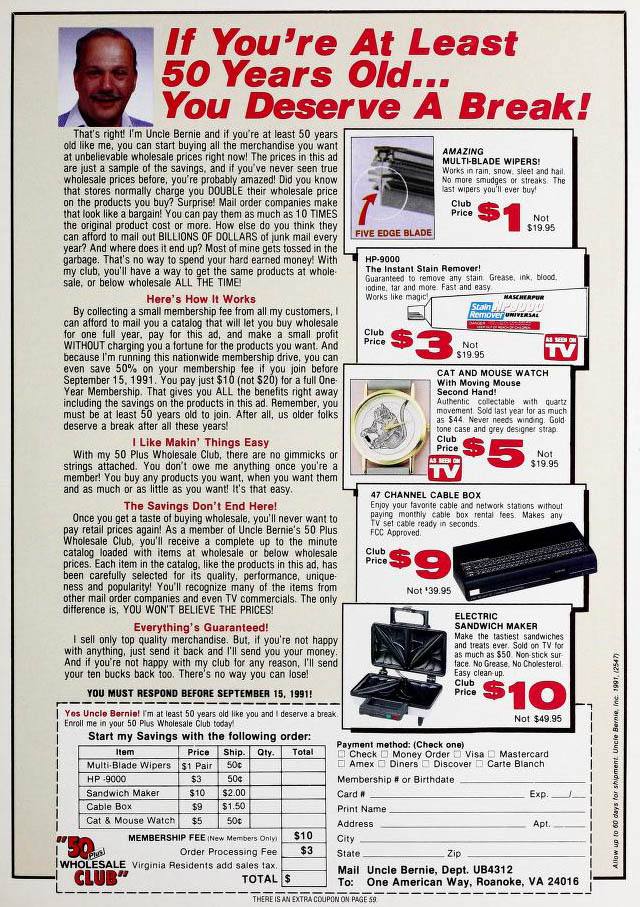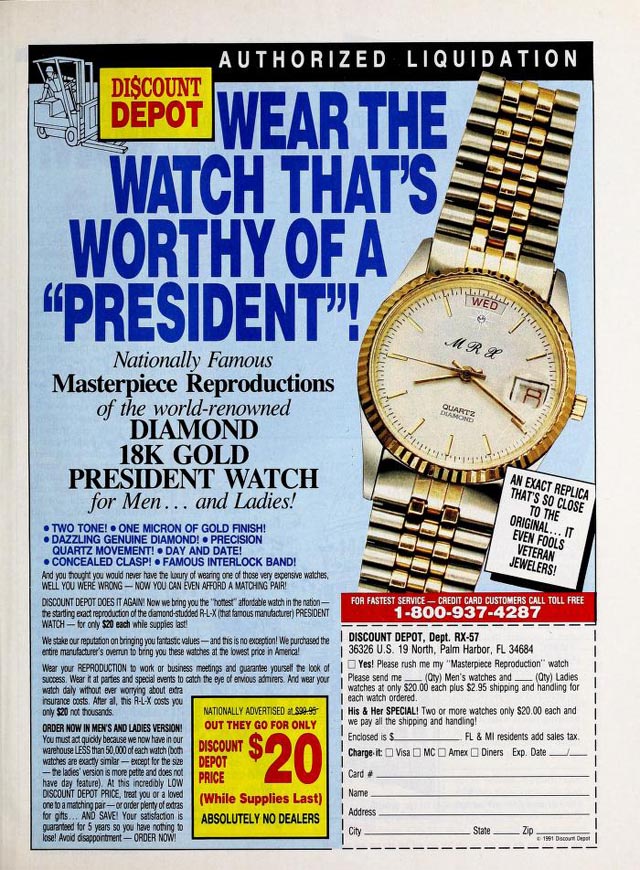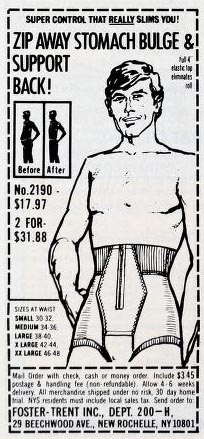the world of american legion magazine: the war on somebody's notion of standards
NOTE: This December, I'm challenging myself to prepare a post a day here. This is partly an attempt to use up materials I've hoarded lately, partly a writing exercise, partly a test of how disciplined I can be. The posts may be quick discoveries, writing experiments, scattered thoughts, or whatever else pops into my brain. Previous personal challenges like this have petered out quickly, so consider yourself warned!
For the past few months, the Internet Archive has been my giant rabbit hole. I've spent many hours exploring its magazine collections, including random selections of major periodicals, titles I loved as a kid, and microfilms of trade journals that will be useful for future projects. It's been equally enlightening and head-scratching.
Falling into the latter category is a run of The American Legion magazine from the 1990s. Serving the largest veterans organization in the US, the magazine focused on sensationalistic right-wing content during this period. Historically the organization has had some dubious beliefs, from looking longingly at fascism in the 1920s to being a toxic environment for minority members.
But the 1990s...hoo boy.
Let's begin with their take on the state of American culture. This cover provides a clue to their approach by dragging out the tired cliché of 1970s punk attire as a representation for everything bad and scary about the modern world. Never mind that Bach's lifestyle might have sent the magazine's editors and readership into fits.
The article was written by Michael Medved. As a child, I loved the books he co-authored with his brother Harry on bad movies such as the Golden Turkey Awards series, but time and viewing the movies profiled, which include some decent flicks, dampened my enthusiasm (I recommend Will Sloan's essay on bad movies and the Medved books). Though there were clues in his earlier work, it is around this time that Medved moved into his later career as a conservative commentator, culture warrior, and defender of idealized mid-20th century morality.
"Everywhere around us," Medved groans in his opening argument, "in every realm of artistic endeavor, we see evidence of the rejection of traditional standards of beauty and worth. In the visual arts, in literature, in film, in music both popular and classical variety, ugliness has been enshrined as a new standard, as we accept the ability to shock as a replacement for the old ability to inspire."
Psst, Mikey? I can call you Mikey, right? You do know that ugliness has been around as long as humanity and that artists have always been inspired by the less-than-beautiful things surrounding them, right? Styles and canons change. And while there are definitely works solely created for cheap shock value or for nefarious ends, sometimes those same things can inspire people to produce smarter pieces of work. Sometimes ugly strikes the right nerve to provoke cultural change for the better.
The opening leads into a grumpy old man spiel about the ugliness of early 1990s cinema as a playground for non-family-friendly moral depravity, suggesting we need fewer films like The Grifters and more Andy Hardy style wholesome entertainment. "Today, the movie business regularly offers us characters who are smaller than life, who are less decent, less intelligent, less noble than our friends and neighbours."
This is followed by his angst at the increasing attacks against the traditional family structure, noting that even a film like Look Who's Talking, which celebrates child-rearing, commits the horrifying act of depicting a single person as a parent. In this world, single people, whether choosing to act solo or having broken up with their previous partners, are tragic deviants who encourage and perpetuate a cycle of out-of-wedlock births.
Medved then rails against a music industry obsessed with "the simple-minded glorification of animal lust," promoting sex that is less pure than the romantic liaisons presented on oldies stations. The man is clearing wearing blinders by this point.
Two letters praising this piece were published three months later. Frank Fedele of Williamsport, Pennsylvania wrote that "too many people would like us to believe the normal is MTV with all its smut and sexual connotations," while Jack Stuart of Cloverdale, California bemoaned that "there are a number of intelligent people in this country seeking to destroy our culture." Plug that sentence into similar complaints about 21st century culture.
Advertisers in this issue seem to be sketchier than one would like to expect in publication trying to hold the moral high ground, taking advantage of veterans on tight budgets looking for bargains. Imitation watch designed to stroke one's ego, anybody?
Once you've solved your impotence problems, let's work on your gut. Who needs diet and exercise when you can buy a male girdle?
Oh that rascally Burl Ives! Hopefully he enjoyed a holly jolly Christmas with his model that year.

Was this "Uncle Bernie" selling cheap consumer crap to veterans connected to the "Uncle Bernie" who advertised novelty gifts in the 1950s? Was he inspired to brand himself ironically/cynically after the Mothers of Invention song which attacks cheap consumer crap? Did he just like the ring of "Uncle Bernie"?
Whatever the case, it appears this "Uncle Bernie" was not to be trusted.
You can browse the entire issue here at your own risk.
Sources: the August 1991 and November 1991 editions of The American Legion.







Comments